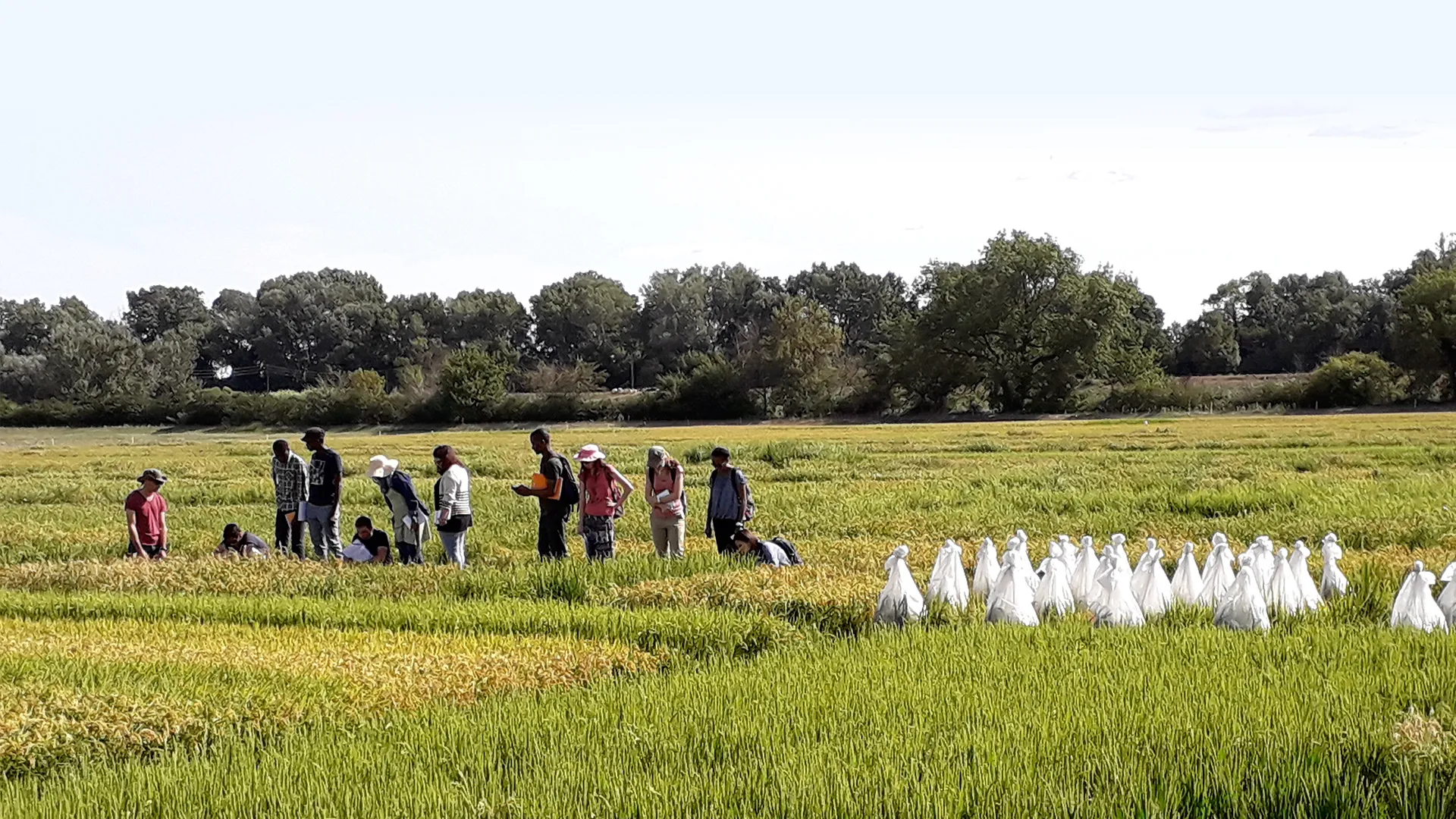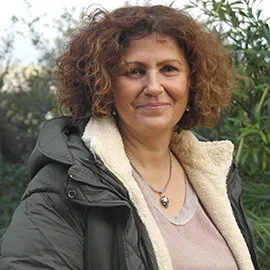|
What type of training ? |
une formation diplômante, sous statut étudiant |
|---|---|
|
For who ? |
student with a French diploma, international student |
|
Where ? |
L'Institut Agro Montpellier - La Gaillarde Campus |
Objectives
To adapt agriculture to global changes while preserving agricultural diversity, it is essential to mobilize innovation to improve crops is an essential lever.
The Plant breeding, Mediterranean and tropical crops engineering option trains scientists in genetics and plant engineering for careers in the seed, genetic resource management and academic research sectors. The training is general and allows a professional insertion whatever the crop.
Through the program, students acquire:
- academic and conceptual expertise in genetics and plant modelling that takes into account the latest technological, agronomical and societal advances implemented in partner public and private research communities,
- solid skills in large data set analysis using an operational teaching approach focussing on projects,
- innovative tools for measuring and interpreting traits that enable plants to cope with biotic and abiotic environmental constraints,
- a multi-faceted vision of the sector and its professional actors, from farmer seed networks to industrial agriculture,
- an ability to work in multicultural and international teams, since APIMET is paired with an international master's degree
- skills to work, exchange and report in English to facilitate integration in international teams
- elements to develop a position as an expert and a citizen on ethical and regulatory debates regarding biodiversity, farmers' rights, intellectual property and the use of methods to modify living organisms.
These skills are acquired through diversified teaching:
- courses and seminars given by teachers and researchers from the partner community,
- regular meetings with professionals during study tours and interventions,
- tutorials and workshops applied to data sets obtained by the latest genome access and modelling technologies,
- projects linking professional actors of the different sectors concerned,
- end-of-studies internship based on an individual applied research project in the private or public sector.
- regular visits and a full week of travel around France
- high level modules open to professionals based on an original teaching methods (workshop, serious game)
Themes
- agronomy, agroecology
- plant breeding
- biodiversity knowledge and management
- information technology and biostatistics
- Mediterranean and tropical countries
-
Programme
Number of ECTS credits : 60
Language of instruction : In French
The program consists of 4 teaching units. The theoretical training is followed by a 6-month practical internship.
Particular emphasis is placed on:
- plant genomics, genetic diversity of cultivated plants, traits of abiotic stress tolerance and resistance to biotic agents,
- breeding schemes including varieties for organic farming quantitative genetics, the role of biotechnology, the organization and regulation of the seed sector,
- tools required for plant breeding (biostatistics, bioinformatics, modelling),
- basics in soft-skills and management and communication techniques; a group prospective study on the seed sector completes the training,
- development of written and oral skills in English.
Internships
A 6-month internship (March - September, compulsory) completes the training. It aims to enhance the knowledge, skills and working methods acquired during the course and to enable students to gain professional experience. In general, the internship involves an independent applied research project with strong emphasis on data analysis in genetics or plant modelling.
The internship can take place in France or abroad. Many internship proposals come from within the private or public sector, but students are free to look for themselves.
This internship can be done in a public research unit or a private company depending on the student’s career plans. An internship report is presented in mid-September before a jury. For students interested in pursuing a PhD, depending on the context:
- a pre-defence may be organized at the end of June to allow the student to take part in doctoral school competitions anywhere in France
- a joint lab-company arrangement may be envisaged through a CIFRE contract.
-
Calendar
- From September to September
-
Admission
The 3rd year option is open, after review by the admissions committee, to students who have validated the M1 level (first year of a master's program) and come from:
- an international partner institution in the context of academic mobility (earning credits)
- a school of agriculture under the French Ministry of Agriculture and Food (See Ecole des groupes Ingénieurs) or the Ministry of Higher Education for Research and Innovation
- or a French institution with which Montpellier SupAgro has signed an agreement
Application forms may be obtained from the educational directorate of your institution.
Students who have not validated the 2nd year (M1) of the Montpellier SupAgro Agricultural Engineer course are not awarded a diploma at the end of the 3rd year of the training program.
-
Careers
Employers
- Private plant breeding companies, partners and plant breeding service providers
- Seed and plant producing establishments
- Farmers’ seed networks
- Technical institutes
- Professional or inter-professional organizations in the seed and plant sector
- French or foreign public research and higher education establishments
- International organizations for agronomic research and plant breeding
- Access to certain job openings is facilitated by pursuing a PhD
Jobs
Positions oriented around plant breeding:
- Plant breeder
- Pre-breeder, trait breeder
- Project leader
- Plant selection support: production of genotyping data, production of phenotyping data, bio-statistics, bioinformatics
- Ex situ collection manager
- Laboratory manager
- Collaborative research facilitator, research officer
And also… Public sector researcher
Jobs oriented around plant sectors:
- Seed production manager
- Quality / certification / protection of new varieties manager
- Product manager, development engineer
- Sales manager
- Research / mission manager in seed inter-profession organizations (data analysis, modelling and tools for decision support)
Director of studies
Partners
- Private sector companies, partner companies and service providers
- Montpellier-based research units: AGAP, DIADE, LEPSE, BGPI, BPMP, CEFE
- Outside Montpellier: UR GAFL Avignon, UMR GDEC Clermont Ferrand, UMR Quantitative Genetics and Evolution (GQE - Le Moulon), etc.
- Research institutes: CIRAD, IRD, INRAE, CNRS
- Groups / associations or networks of actors and seed unions: GNIS, ASF, UFS, Réseau Semences Paysannes...
- Agropolis International scientific community
- Consultative Group on International Agricultural Research - CGIAR
Place
L'Institut Agro Montpellier
Campus de La Gaillarde
2 place Pierre Viala
Montpellier
Key features
- Expertise in the field thanks to knowledge and tools (particularly in data analysis and modelling) that can also be used in other activity sectors
- Skills and perspectives to contribute to sustainable agriculture
- Responsibility for agricultural development models
- High impact on agricultural progress in interaction with other disciplines
- Immediate employability in a sector that is constantly innovating
- Possibility to continue with a PhD
- Internationally oriented jobs
- Alumni: social networks and groups for jobs opportunities
Fees
€1,959 + €105 Contribution Vie Etudiante et de Campus (CVEC) administrative fee
Contacts
L'Institut Agro Montpellier
2 place Pierre Viala
34060 Montpellier - France
Tél. : +33 (0)4 99 61 22 00 Tél. : +33 (0)4 99 61 22 00
Fax : +33 (0)4 99 61 29 00
contact@supagro.fr

























